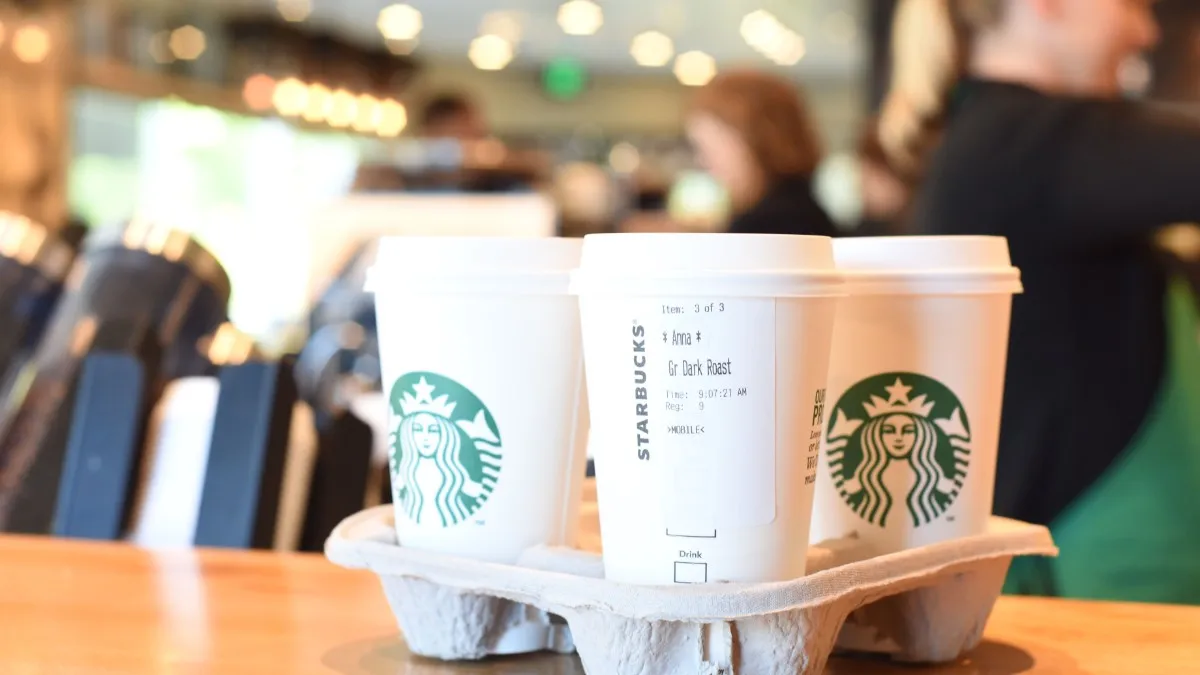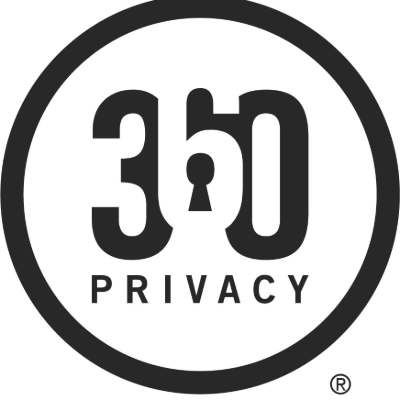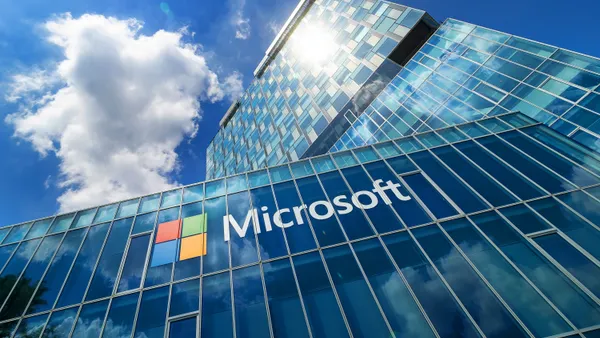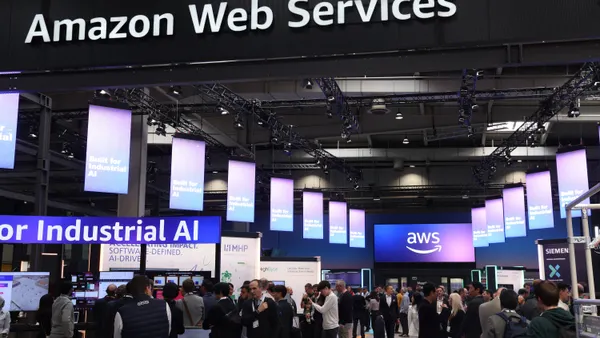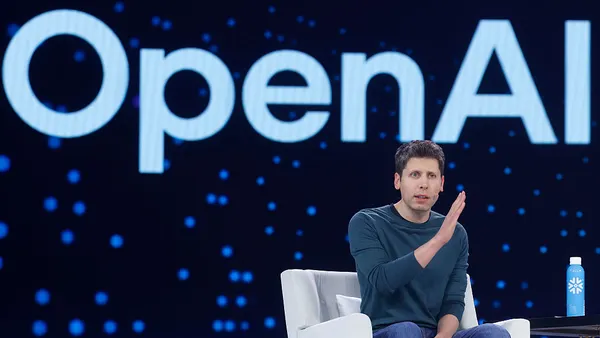Dive Brief:
- Starbucks continues to emphasize its digital strategy, calling out the role artificial intelligence is playing in personalization, according to President and CEO Kevin Johnson, during the company's Q4 2019 earnings call Wednesday.
- In the last year, the chain increased AI investments and internal capabilities with its Deep Brew initiative. Starbucks intends to use Deep Brew to "free up partners," drive in-store inventory management, and drive its personalization engine, according to Johnson.
- Starbucks' use of AI and ML is deriving insights from a workforce-related effort that "tested the upper limits of investment potential," according to CFO Pat Grismer. Though the labor changes were not designed to provide a payback in Q4, Starbucks plans to use the AI to analyze future labor deployments.
Dive Insight:
Starbucks doesn't shy away from technological innovation.
Last year the chain launched its "bean to cup" blockchain pilot in an effort to create more transparency in its supply chain. The traceability technology is another mark in Starbucks' commitment to ethically sourcing coffee beans.
The company relies on the expertise of tech vendors, including Microsoft, to push its initiatives. In May the company tapped Microsoft for Azure's reinforcement learning technology.
The ML technology is designed to digest feedback and then "make decisions in complex, unpredictable environments."
By July, Starbucks announced a partnership with Brightloom to create an end-to-end cloud-based restaurant software. Through the partnership, Brightloom has a software license to parts of Starbucks internal digital flywheel software.
All of these initiatives are building up Starbucks' digital strategy. Starbucks racks up more than one billion digital customer occasions in a year, said Johnson.
Along with "delivering relevant beverage innovation," digital is Starbucks' current frontier, said Johnson. Deep Brew, a project launched in 2017, should help with that.
Deep Brew algorithms sit on Azure, letting Starbucks deploy ML across endpoints, including order and pay on apps, drive-thru menu boards. Deep Brew has provided Starbucks with a "playground," leaving it capable of iterating and testing algorithms, said Jon Francis, SVP Enterprise Analytics & Insights at Starbucks, while speaking at Microsoft Build in May.
In an effort to do something "a little bit elevated," Starbucks is continuing to experiment in ways to make in-store experiences digital, said Johnson. Data points such as transactions, ingredients in products, context in terms of what time of day or store location and weather feed into personalized recommendations for customers.
To support the customer personalization Deep Brew is processing, Starbucks updated its backend infrastructure, Brew Kit. The company initially faced issues with co-location of data, long lead times and ease of access, said Vishwanath Subramanian, director of Data Engineering and Analytics, while speaking at the event.
Starbucks built Brew Kit "to offer zero-friction analytics," said Subramanian. It meant that business users could focus on outcomes, not DevOps.



